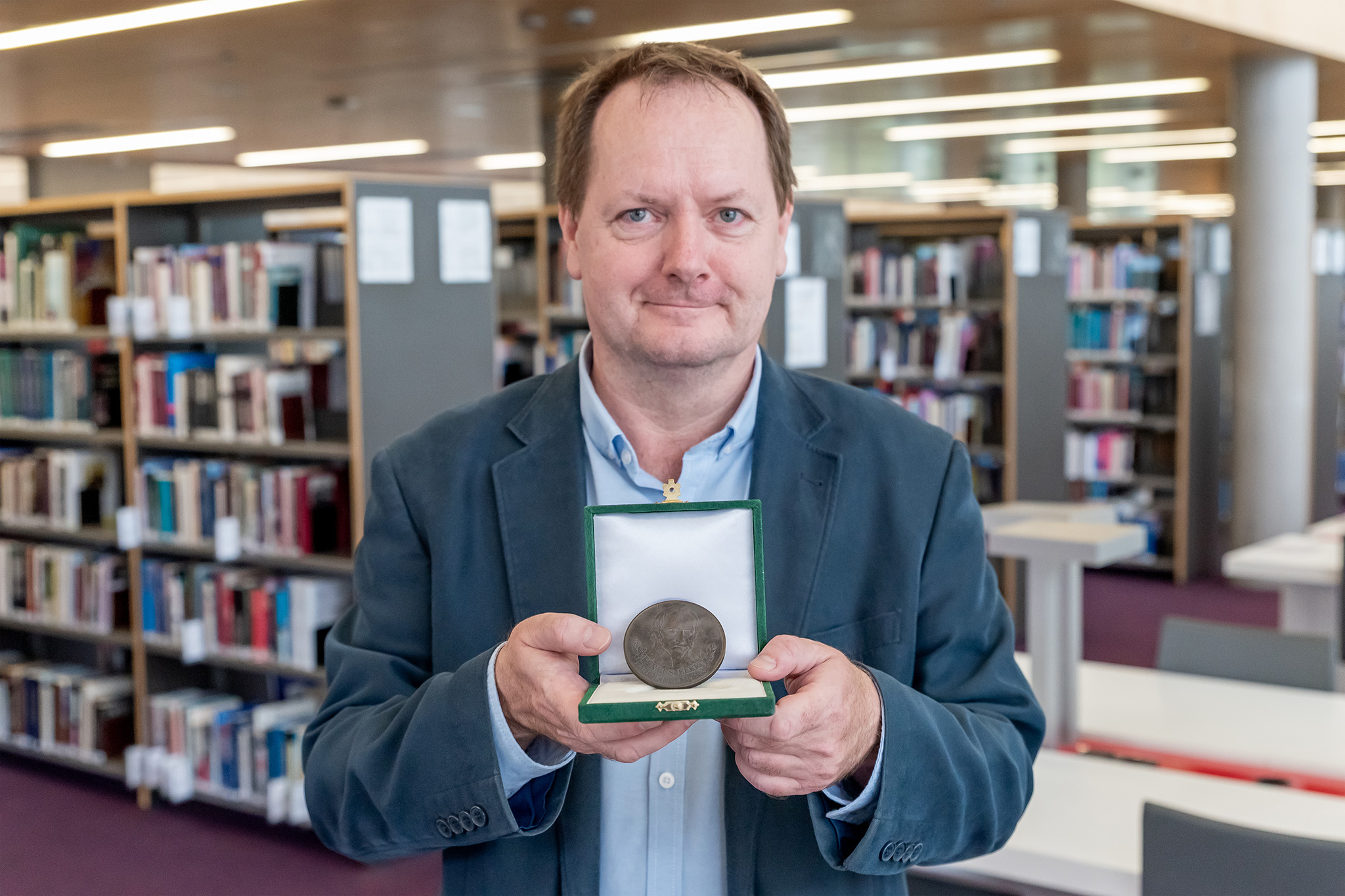SZE Professor Recieves Top Hungarian Statistics Award
In recognition of his outstanding professional work, Dr Tamás Dusek, head of the Doctoral School of Regional Sciences at Széchenyi István University, has recently received the Elek Fényes Award, the most prestigious award in the field of statistics. The professor at the Kautz Gyula Faculty of Business and Economics has been conducting research for nearly thirty years and continues to assist the Department of Statistics, Finance and Controlling as a lecturer.
Dr Tamás Dusek, even as a ten-year-old, showed a keen interest in statistical pocketbooks, a passion that has only grown over the years. Today, he is one of Hungary’s most esteemed figures in the field of statistics. As the head of the Doctoral School of Regional Sciences at Széchenyi István University, he remains actively engaged in teaching and research activities, driven by his unwavering curiosity. Dr Dusek is a member of the governing body of the Hungarian Academy of Sciences (MTA), serves as Vice-Chairman of the Regional Sciences Committee within the Department of Economics and Law, and participates as a member of the MTA's General Assembly.
"In my field of expertise I have always tried to be an active participant in the most important forums, for example, I am a member of the editorial board of the journal ‘Területi Statisztika’ and the English-language journal ‘Regional Statistics, but I am also the editor-in-chief of the publications ‘Statistical Review’ and the ‘Hungarian Statistical Review’ ”, Dr Dusek explained. He added that he supports the work of the Hungarian Statistical Association as a board member and department chair, while also actively participating in conferences that cover related disciplines.

Dr Tamás Dusek with the Elek Fényes Award from the Hungarian Central Statistical Office (Photo: András Adorján)
The professor's professional career started in 1990 in Győr, where he graduated from college as a business economist, specializing in urban economics. "At that time, the department was run by an external chair of the Centre for Regional Studies of the Hungarian Academy of Sciences. After graduating from the College, I obtained a degree in economics from the Budapest University of Studies and Business Administration. I started my research career at the Centre for Regional Research of the Hungarian Academy of Sciences, where I worked until 2000, while I was already teaching here at Széchenyi. In 2004 I defended my PhD thesis at the Doctoral School of Earth Sciences of Eötvös Loránd University, on the methodological issues and specific methods of spatial statistical analysis, which is a highly interdisciplinary topic according to the classification of disciplines," he added.
He has been working at Széchenyi István University for more than 20 years, teaching statistics, econometrics and other economics courses, and has held the position of head of department. He took over the leadership of the Doctoral School of Regional Sciences four years ago, following the retirement of its founder, Professor János Rechnitzer. The school is very popular in the region and internationally, with around half of the students in the English-language economics programme coming from abroad. "The new academic year starts this September with 23 students in the regional science programme and 12 in the economics programme," said Dr Dusek. He also stressed that the research and teaching activities of doctoral students are crucial to the life of Széchenyi University, as the commitment and work of the school's PhD candidates support the maintenance of high quality education and academic development. "One third of the more than 150 PhD students who have graduated are teaching or researching at Széchenyi University (in several faculties, but most of them in the Kautz Gyula Faculty of Business and Economics and the Apáczai Faculty)," he added.
"I think professional events, meetings and discussions between researchers are important, as they can be a real source of inspiration and common interests, and can even lead to international cooperation. I also encourage our doctoral students to take advantage of the opportunities offered by the University, to attend national and international conferences and to be active members of the scientific community, as experts in their own research field, but also interested in other fields," he said.
Dr Dusek is currently working on a major publication, ‘The meta-theoretical history of economics’, which will explore economic theory and the history of science, supported by the National Fund for Scientific Research. His most recent paper is ‘Some basic issues in measurement and measurement theory’, published in the Statistical Review. "It summarises the results of general statistical research over the past twenty-five years, examines different conceptions of measurement, the historical evolution of the concept and content of measurement from its beginnings to the present day, and also deals with the theory of measurement scales," he outlined. The Fényes Elek Award recipient professor believes that successful research and publication requires a lot of reading, valuable discussions, in-depth thinking and a sufficient amount of time, and is grateful for the support of the University.











